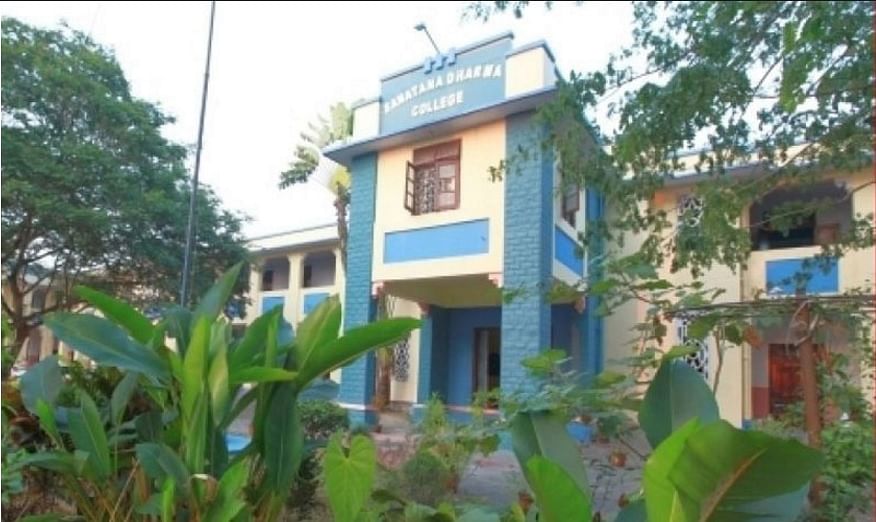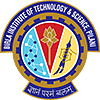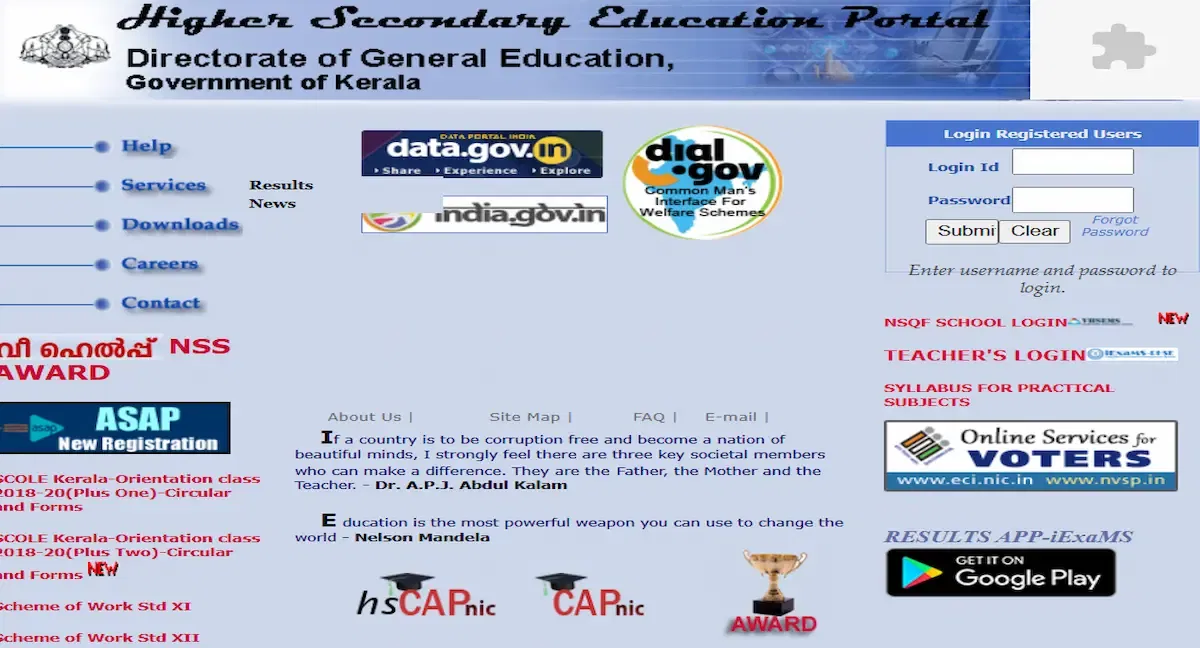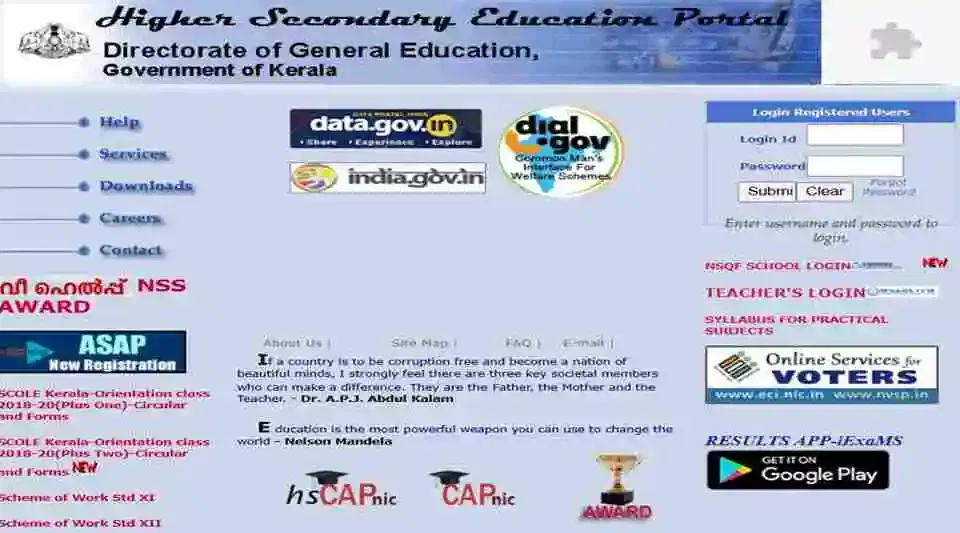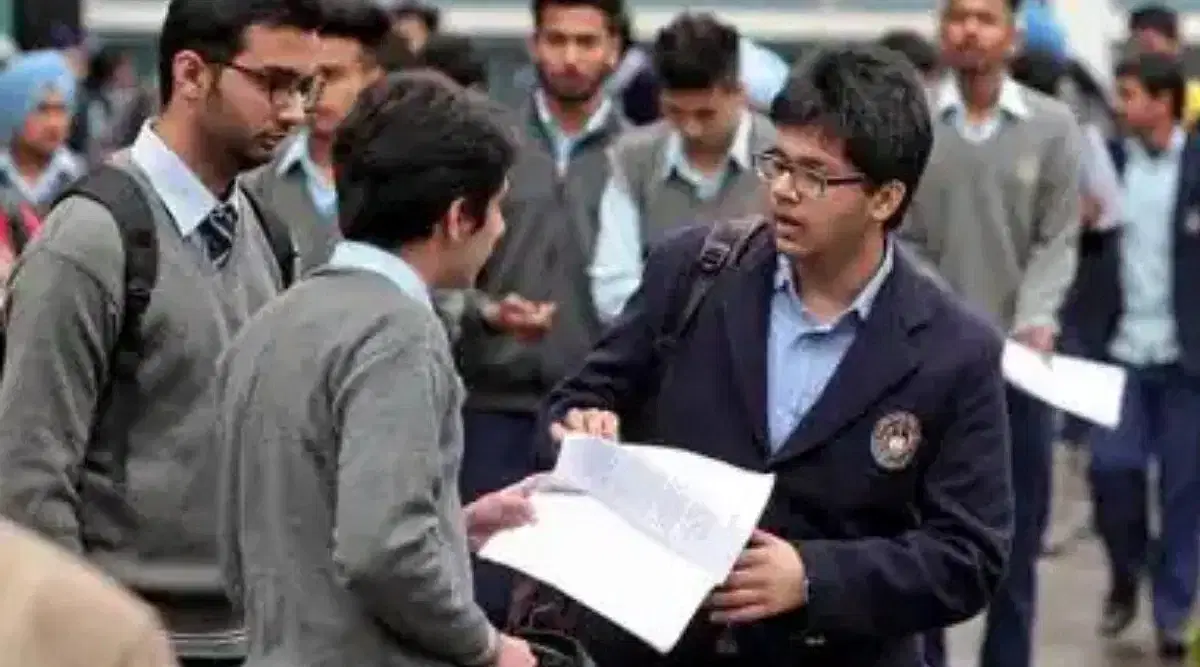Kerala Plus Two Political Science Syllabus 2026: Check Chapter-Wise Topics
The Kerala Plus Two Political Science Syllabus 2026 is redesigned, covering contemporary global politics and India's post-independence journey. It helps students grasp today's world political system and the evolution of the Indian polity. Divided into Part A (global themes) and Part B (Indian politics), students can download it for detailed understanding.
Table of Contents
- Kerala Plus Two Political Science Syllabus 2026
- How to Download Kerala Plus Two Political Science Syllabus 2026
- Important Topics for Kerala Plus Two Political Science Syllabus 2026
- Best Books for Kerala Plus Two Political Science Syllabus 2026
- Preparation Tips for Kerala Plus Two Political Science Syllabus 2026
The Kerala Plus Two Political Science syllabus 2026 has been redesigned to include some pertinent themes on the global or Indian political spectrum. It covers the center of peripheral politics, is further divided into two sections.
The Kerala Plus Two political science syllabus section A deals with the politics of the contemporary world, which includes significant political developments such as the Cold War, the emergence of new powers and other regional organizations, and the place of multi-national bodies like the UN.
Part B includes politics in India after independence, which deals with some issues regarding the political development of India from the era of organized economic growth to the current phase of the party system.
Kerala Plus Two Political Science Syllabus 2026
Kerala plus two political science syllabus has also been designed so that the learners will learn about today's world political system and the evolution of the Indian polity after independence. Students can refer to the DHSE Kerala official page or look for additional course syllabus in PDF documents, if available.
Part A: Contemporary World Politics
Students can easily download the Kerala Plus Two Political Science syllabus for an in-depth understanding.
| Name of Chapter | Topics Included |
| Cold War Era and Non-Aligned Movement | Origins of the Cold War, Non-Aligned Movement, Superpower Rivalry, End of Colonialism |
| The End of Bipolarity | Collapse of the Soviet Union, US Hegemony, Unipolar World Order, Post-Soviet States |
| New Centres of Power | European Union, ASEAN, BRICS, Rise of China, Regionalism in World Politics |
| South Asia and the Contemporary World | Conflicts and Cooperation in South Asia, India's Role, SAARC, Bilateral Relations |
| United Nations and its Organizations | Structure of the UN, Peacekeeping Operations, Security Council Reforms, UN Agencies |
| Globalization | Economic Globalization, Impact on Developing Countries, Role of Multinational Corporations, Global Governance |
| Challenges of Nation-Building | Partition of India, Integration of Princely States, Linguistic Reorganization, Regionalism |
Part B: Politics in India Since Independence
These themes are very important not only in politics as a whole but also in Indian politics and will enable students to provide comprehensive and composite-based answers in the examination.
| Name of Chapter | Topics Included |
| Planned Development | Nehruvian Socialism, Five-Year Plans, Economic Policies, Green Revolution |
| India’s Foreign Policy | Non-Alignment, India-China Relations, India-US Relations, India’s Role in the Global South |
| Parties and the Party Systems in India | Evolution of Indian Party System, Congress Dominance, Rise of Regional Parties, Coalition Politics |
| Democratic Resurgence | Emergency of 1975, Anti-Emergency Movements, Janata Government, New Social Movements |
| Indian Politics: Trends and Developments | Liberalization and Economic Reforms, Rise of Hindutva, Role of Media in Politics, Coalition Governments |
Also Check: Kerala Plus Two Mathematics Syllabus
How to Download Kerala Plus Two Political Science Syllabus 2026
The procedure for downloading the Kerala Plus Two Political Science syllabus is below.
- Step 1: Visit the Official Website: The official website of the Directorate of Higher Secondary Education (Dhse) Kerala dhsekerala.gov.in should be opened.
- Step 2: Navigate to the Syllabus Section: On the homepage, locate the "Syllabus" section or "Curriculum" option, which will be available under the Academics tab.
- Step 3: Select Class 12 Syllabus: Click the Plus Two/Class 12 Syllabus link.
- Step 4: Choose Subject: From the list of subjects, choose Political Science.
- Step 5: Download the syllabus: A PDF of the Kerala plus two political science syllabus will appear on the screen. Click the download link to save the appropriate PDF document in the device.
Also Check: Kerala Plus Two Physics Syllabus 2024-25: Download PDF
Important Topics for Kerala Plus Two Political Science Syllabus 2026
When preparing for the Kerala Plus Two Political Science examination, the students must concentrate on the key areas given below.
Part A: Contemporary World Politics
- Cold War Era and Non-Aligned Movement: Discuss Cold War, how the US and USSR became enemies, and why certain new countries.
- The End of Bipolarity: Discuss collapse of the Soviet Union and the shift of strategy in world politics from bipolar to unipolar.
- New Centres of Power: Discuss how China and the EU are active players as middle powers in the international political arena.
- South Asia and the Contemporary World: Analyze the political process in South Asian states and their influence on the world order.
- United Nations and its Organizations: Be familiar with the collaboration and apparatus of the UN and other coordinating organizations like WHO, IMF, etc.
- Globalization: Discuss influence globalization has brought to the economics, politics, ease, and freedom of movement of people, goods, and ideas.
Part B: Politics in India Since Independence
- Challenges of Nation-Building: Explore merger of princely states, the formation of states on a linguistic basis, and vision and actions of Jawaharlal Nehru and the leadership in the nation-building process.
- Planned Development: What were the five-year plans prepared for? What do these five-year plans intend to achieve? What has been achieved, and what problems remain in the Indian economy?
- India’s Foreign Policy: Investigate the circumstances surrounding the relations of India and its neighbors, Non-Alignment, and the position of India on the international order.
- Parties and the Party Systems in India: Examine the development of party systems, politics of coalition, and politics of the multi-party system of India.
- Democratic Resurgence: Assess the interludes of political crises such as the Emergency and the growing power of regional parties in the later years.
- Indian Politics: Studies focus on recent trends such as political change, economic reforms, and globalization of politics in contemporary India.
Also read: Kerala Plus Two Exam Pattern 2025
Best Books for Kerala Plus Two Political Science Syllabus 2026
Here are some of the recommended books that are most effective with Kerala Plus Two Political Science syllabus content to ensure that the students understand both 'Contemporary World Politics' and 'Politics in India Since Independence.'
| Name of the Book | Details |
| Exam Winner Boby Books | The book elaborates on the political topic under the syllabus. There are several practice exercises and model questions that are essential in reinforcing the core areas of the book. |
| Plus Two Political Science by Gaya Books | Meeting the Kerala Plus Two Political Science syllabus requirement of the students in this book comprehensively takes care of both sections of the syllabus, from Politics of the Contemporary World to Politics in India Since Independence |
| Plus Two Exam Points Political Science | This book is focused on the entire Kerala State syllabus, and hence, it is recommendable for HSE, VHSE, and Open School examinations preparations. This brings down political ideas with the use of friendly language to students and displays a variety of model papers as well as past papers, making it convenient for extensive revision. |
| Plus Two Political Science English Excel | This book is very practical and tries to explain sociocultural, economic, and geographical factors that have been the basis of what politics in India have been since independence and what current world politics are all about. |
Preparation Tips for Kerala Plus Two Political Science Syllabus 2026
Kerala Plus Two Political Science syllabus created in such a way that the reader does not have to struggle when reading the political issues that have been taught in the syllabus.
- Convert the themes into timelines for the study of them in order to assist with the chronology of changeover from a bi-polar world to a tri-polar world.
- Sketch a mental map for each theme: ‘Planned Development’ and ‘Democratic Resurgence,’ for instance, to demonstrate the correlation between policies and collective action.
- Apply the understanding of international relations and India’s diplomacy by researching case studies. For instance, when one interacts with the UN systems, knowledge of India in the formative years of the non-aligned movement would be valuable in such a context.
- After every chapter, attempt to write a brief account. In each case, appeal to the relevant concepts of political discourse, whether it is globalization and democratic resurgence or party systems in India. These synopses will assist with more precision and save time in revisions during examinations.
- With regard to those chapters that are related to world politics, maps can be used to find significant geographical areas and countries. In this way, for example, issues related to the political geography of South Asia or the Cold War will become more interesting and easier to learn.
- The discipline of political science does not merely involve rote collections of data but also entails the prediction of patterns and styles. For 'Trends and Developments in Indian Politics' sort of topics, follow the news in order to grasp how those historical events could lead to policies such as those of today.
- We recommend to rehearse the essay writing skills using the question papers that were available in previous years. Look out for common themes among the questions, particularly in the appreciation and evaluation of political systems.
Check for other subjects: Kerala Plus Two Syllabus 2024-25
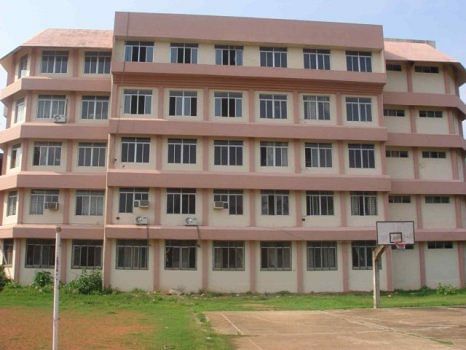

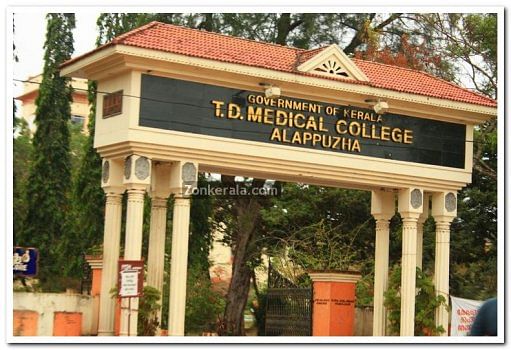



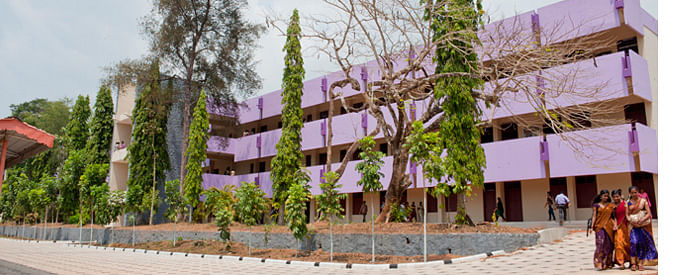
![Christian College, [CC] Alappuzha](https://media.getmyuni.com/azure/college-image/small/christian-college-cc-alappuzha.jpg)

![Milad E Sherif Memorial (MSM) College, [MSMC] Alappuzha](https://media.getmyuni.com/azure/college-image/small/milad-e-sherif-memorial-msm-college-msmc-alappuzha.jpg)
